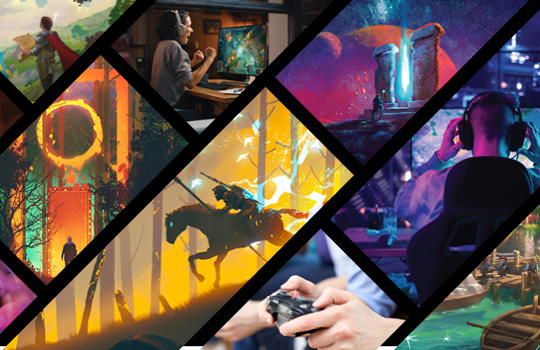Lionbridge proudly attended the major gaming conferences this year to represent our games localization solutions and game testing services. We enjoyed meeting people at:
- Game Developers Conference
- Gamescom
- XDS
- Tokyo Games Show
We want to share key observations and trends from the conferences regarding the gaming industry, focusing on games localization, QA testing approaches, and the evolving role of AI in delivering multilingual content at scale.
#1 Quality Assurance Testing is Expanding Throughout the Development Pipeline
Across this year's conferences, one trend clearly emerged: Studios are investing in more rigorous QA and localization quality assurance (LQA) throughout the entire development lifecycle, not just at final release.
Compressed margins demand earlier validation: With reduced budgets and risk tolerance post 2020, publishers require proof of viability earlier in development. Functional QA and LQA testing at alpha and beta stages helps identify technical issues and localization breaks before committing significant resources.
Increased game complexity creates localization challenges: Modern games feature branching narratives, procedurally generated content, and complex UI systems across expanded game worlds. These elements create unique localization challenges: text overflow issues, context-dependent translations, and cultural adaptation needs requiring specialized LQA expertise to resolve.
Cross-platform consistency for global launches: Simultaneous global releases across multiple platforms mean LQA must verify that localized content performs consistently, whether players are on console, PC, mobile, or VR. Platform-specific technical limitations can create unique localization issues that standard functional QA won't catch.
Live service models demand continuous LQA: Games operating as live services require ongoing LQA for seasonal content, updates, and community events. Localization must be tested for linguistic accuracy and seamless integration with existing content and systems.
Player expectations in a global, social media-driven market: Today's global player base expects launch-day access in their language with the same quality as the source language. A single localization bug trending on social media can impact a game's reputation across entire regions. LQA isn't just about quality. It's risk mitigation for your global launch.
#2 AI-Powered Games Localization: Meeting the Simultaneous Global Launch Challenge
The demand for day-and-date global releases creates a fundamental challenge: how do you deliver high-quality games localization across 15+ languages without extending your development timeline? AI games localization is an emerging solution, and conversations at this year's conferences focused on two critical advantages:
Accelerated localization pipelines: AI-powered games localization services deliver translations 40% faster than traditional workflows. This speed enables studios to maintain simultaneous global launch schedules while supporting more language SKUs. This is critical when competing in mature markets like China, Japan, and Europe, where players expect native language support at launch.
Economic viability for emerging markets: Traditional localization costs often forced studios to prioritize only the largest markets. AI-assisted translation makes it economically viable to support tier-2 and tier-3 languages, opening up emerging markets in Southeast Asia, Latin America, and Eastern Europe. More supported languages means a larger addressable player base and increased lifetime revenue potential.
The key insight from developer conversations: Studios don't want to choose between speed, cost, and quality. They need solutions delivering all three.
#3 Lionbridge Samurai™: Customized AI That Understands Your Game First
When we unveiled Lionbridge Samurai™ at this year's conferences, developers’ and publishers’ responses validated what we've learned from decades of games localization: generic AI tools fail because they don't understand gaming's unique requirements.
Samurai represents a fundamentally different approach. It's built by a games localization company for game developers. The solution comprises frontier-model AI customized to each project's needs and supported by expert human linguists and localization engineers.
Context-first architecture: Unlike generic translation AI, Samurai is trained first on your game's characters, world-building, tone, and narrative structure. It then applies that understanding to translation. This approach delivers consistent character voices, maintains world lore accuracy, and preserves creative intent across all target languages.
Game-specific customization: Samurai adapts to your game's unique challenges, whether maintaining rhyme schemes in a narrative adventure, preserving wordplay in a comedic RPG, or ensuring technical accuracy in a simulation game. The system learns and consistently applies your game's specific requirements across all languages.
Human expertise at the core: Samurai combines AI efficiency with human TEP-quality oversight. Our experienced gaming linguists review and refine outputs, ensuring Samurai properly addresses cultural nuances, regional preferences, and age rating considerations. Samurai offers AI speed with human quality assurance.
The result: faster delivery without compromising the localization quality your global players expect.
Get in touch.
Have game testing needs or game localization needs? Ready to explore how AI-powered game localization can support your global launch strategy? Reach out to us today to learn how Samurai and our gaming translation services can help your team publish high-quality, multilingual content faster and expand your player base globally.
